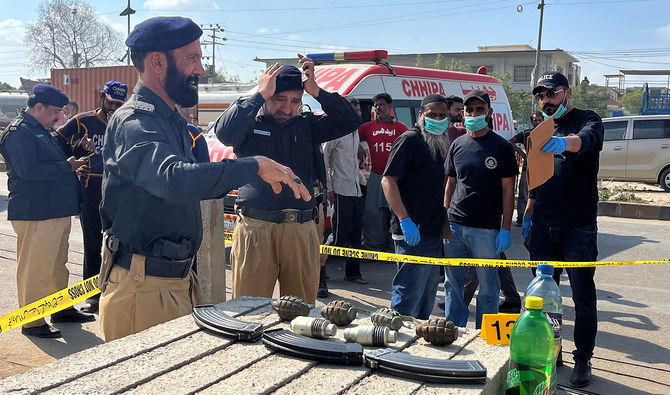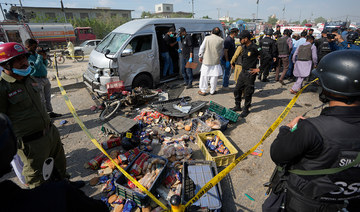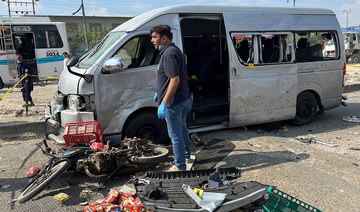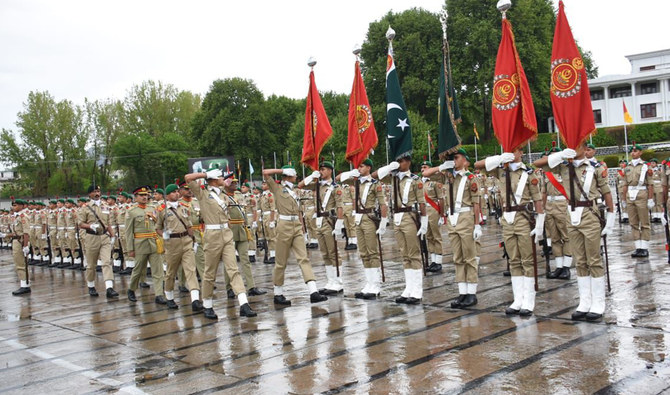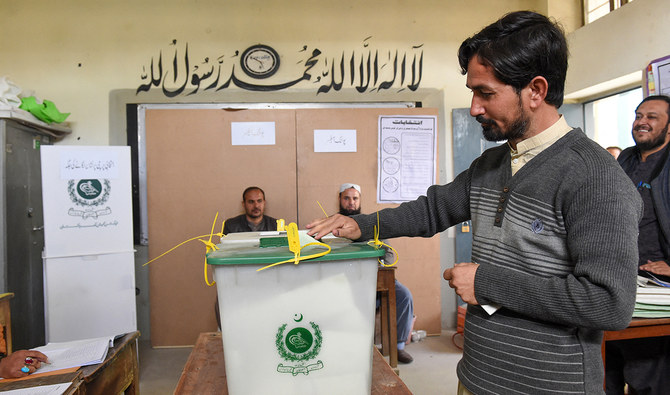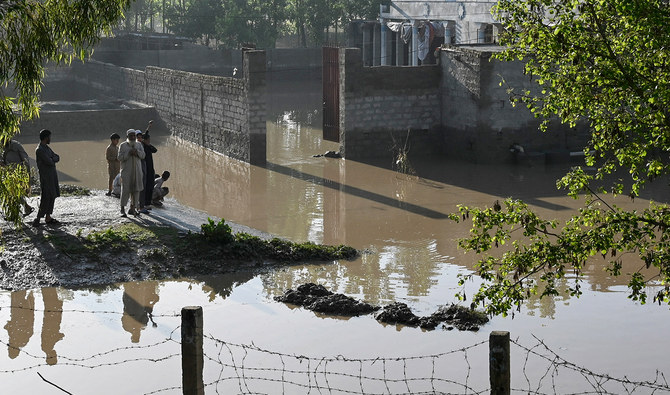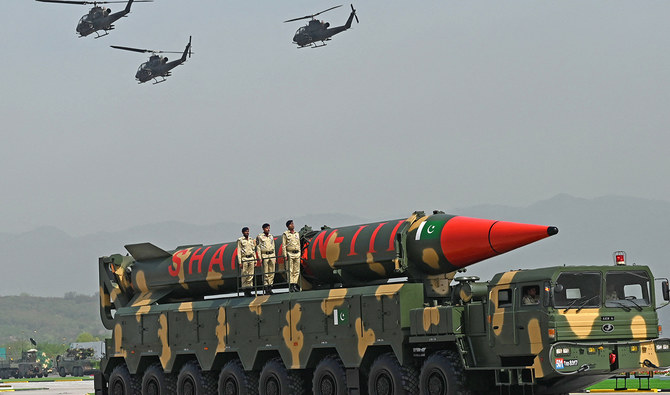RAWALPINDI: Pakistan-born, Saudi Arabia-based motorcyclist Muhammad Usman Ghani, 27, said this week he felt “proud” that he could represent his country as the first Pakistani to hold a Fédération Internationale de Motocyclisme (FIM) racing license.
The FIM, founded in 1904, is the global governing body for motorcycle sports and international advocate for motorcycling.
Ghani, whose motorcycle is customised in the green and white colors of the Pakistani flag, got his FIM license in 2017 and in the last three years has achieved a number of successes in motorcycling, including 10 podium wins, awarded to the three highest placing drivers in a race.
“It’s a very proud feeling — to be the first to wave the flag at this level, there is no better feeling than to represent my country anywhere, regardless of the level,” Ghani told Arab News in an interview on Monday. “I have always been proud to be a Pakistani. But to be able to bring the green and white on the track, and line up on the gird with some super fast international racers is a feeling nothing short of incredible.”
Ghani, whose family originates from Karachi, grew up in and resides in Saudi Arabia where his passion for motorcycling was encouraged by a thriving culture of auto enthusiasm.

Usman Ghani racing at the Dubai Autodrome, UAE, on January 31, 2020 (Ivan Stan)
“Growing up there [in Saudi Arabia] is a pretty fun experience, it’s a fantastic place with some amazing people and it’s also a petrol head’s paradise,” Ghani said, referring to a term for car enthusiasts. “You’ll see some of the most exotic vehicles on the road, some incredibly unique bikes and it’s one topic that unites everyone there.”
Ghani said he fell in love with motorcycling after watching a Grand Prix motorcycle race (MotoGP) as a child. Another memorable experience, he said, was when a biker let him rev up his motorcycle in the parking lot of a mall in Saudi Arabia when he was a kid.
“I try and do the same if a kid approaches me on the track; you never know when you might inspire the next racing legend with a small gesture,” Ghani, who began motorcycling when he was 18, said.
His first professional race was in 2017, when he competed in the UAE National SuperStock Series.

Usman Ghani in Dubai, UAE on August 27, 2020 (Usman Ghani Instagram)
“I spent an hour sitting with my bike a night before the first race, I have a habit of talking to my bikes always, but I spent a lot of time with it that night, just getting into the mental zone,” Ghani said.
2017 was also the year when he faced his life’s biggest loss so far: the death of a close friend in a motorcycle accident, which left Ghani unable to ride his bike for nearly six months after. But slowly, he learnt to motorcycle again and to find peace in the activity.
“It’s amazing how therapeutic riding is for me or even simply talking about bikes and that is the case with a majority of bikers,” he added. “We don’t ride for any other purpose, but to bring peace to ourselves mostly.”
Ghani’s goal now, he said, is to help more Pakistanis get into motorcycling and to understand the country’s biker culture better.

Usman Ghani with his bike in Dubai, UAE, April 2020 (Mohammed Loca Nour)
“Pakistan has been ready for this sport for some time and the anticipation is at its peak,” he said. “Building a racetrack in Pakistan is the key to developing local talent, reducing road accidents and also attracting international events.”
Ghani said he plans to be in Pakistan in December and travel all around the country, especially Karachi, Lahore, Islamabad and Rawalpindi, to meet bikers.
“I have never really had the opportunity to travel within Pakistan,” he said. “That’s something I’d like to do now along with other bikers in the country.”




